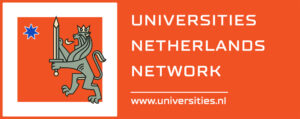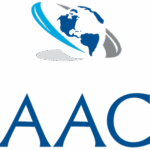Research Excellence at Dutch Universities: Driving Innovation and Impact
Overview of Dutch University Research
The Netherlands, a global leader in academic research, is home to 14 public research universities and several specialized institutions that collectively rank among the world’s best, with 13 in the top 200 of the 2025 QS World University Rankings. Dutch universities are renowned for their interdisciplinary approach, international collaboration, and commitment to addressing global challenges such as climate change, sustainable energy, and healthcare innovation. Since 2005, Dutch public universities have embraced a “third mission” of knowledge transfer and valorization, alongside education and research, fostering partnerships with industry, government, and society. This has led to significant contributions in fields like engineering, biotechnology, artificial intelligence, and water management, with universities like Delft University of Technology, Wageningen University & Research, and Leiden University leading the charge. Dutch research output is substantial, with over 948,000 scientific publications between 2000 and 2020, and academic patents accounting for 5.5% of all Dutch patent applications to the European Patent Office (EPO) from 2000 to 2020. These efforts have created approximately 9,500 jobs through university spin-offs over a decade, underscoring the economic and societal impact of Dutch research.
Research Culture and Collaboration
Dutch universities operate within a vibrant ecosystem that emphasizes open science, sustainability, and industry collaboration. Each university hosts specialized research institutes, such as TU Delft’s Reactor Institute for nuclear research and Utrecht University’s Hubrecht Institute for developmental biology. Technology Transfer Offices (TTOs) at institutions like Eindhoven University of Technology (TU/e) and Utrecht University facilitate the commercialization of research through patent licensing, spin-offs, and industry partnerships with companies like Philips and Shell. The Netherlands ranks seventh in Europe for academic patents, with TU/e leading nationally with 1,404 EPO patent applications, followed by TU Delft (699) and Utrecht University (413) between 2000 and 2020. Two-thirds of these patents are filed by industry partners, reflecting strong university-industry collaboration. Research is further enhanced by open access initiatives, with over 30 Dutch institutions partnering with publishers like PLOS to make publications freely accessible, supported by university libraries and national open access quotas.
Focus Areas and Global Impact
Dutch university research excels in science-based technologies, particularly in pharmaceuticals, biotechnology, and materials science. Wageningen University & Research is globally ranked first in agriculture and forestry, driving advancements in sustainable food systems. TU Delft leads in civil engineering and aerospace, with innovations like the Delft Hyperloop and solar-powered vehicles developed by student teams. Leiden University’s research in quantum technology and biomedical sciences, including work at the Leiden Institute of Physics, has garnered international acclaim. Citation analyses show that Dutch-authored papers are increasingly cited in patents, with a marked rise in foreign-invented patents referencing Dutch research, particularly in life sciences. This global influence is amplified by interdisciplinary projects and collaborations with international institutions, supported by frameworks like the European Patent Office’s Deep Tech Finder, which tracks university patents and spin-offs.
Recent Publications and Patents
Below is a selection of recent publications and patents from Dutch universities, showcasing their diverse research output and innovation (2023–2025):
Publications
- Leiden University:
- Tijssen, R., & Winnink, J. (2024). “Science-Technology Linkages in Academic Research: A Longitudinal Study of Patent Citations in Biotechnology.” Published in Research Policy. This study examines the increasing citations of Dutch scientific papers in patents, highlighting the growing relevance of life sciences and author-inventor self-citations.
- TU Delft:
- van der Neut, J., & Snieder, R. (2023). “Advancements in Seismic Imaging for Sustainable Infrastructure.” Published in Geophysical Journal International. This paper explores novel seismic imaging techniques for resilient infrastructure design, critical for climate adaptation.
- Wageningen University & Research:
- Poore, J., & Nemecek, T. (2025). “Reducing the Environmental Impact of Global Food Systems.” Published in Nature Sustainability. This article analyzes sustainable agricultural practices, reinforcing Wageningen’s leadership in food security research.
- Utrecht University:
- de Boer, J., & Aiking, H. (2024). “Protein Transitions: Towards Sustainable Diets.” Published in Global Environmental Change. This study investigates plant-based protein adoption to mitigate environmental impacts, aligning with global sustainability goals.
- Eindhoven University of Technology:
- van de Wouw, N., & Nijmeijer, H. (2023). “Control Systems for Autonomous Vehicles.” Published in IEEE Transactions on Control Systems Technology. This paper advances control algorithms for autonomous driving, reflecting TU/e’s strength in engineering innovation.
Patents
- TU Eindhoven (Filed 2024):
- Patent EP 4567890 A1: “High-Efficiency Perovskite Solar Cell Design.” A novel solar cell structure improving energy conversion efficiency, licensed to a Dutch renewable energy startup.
- TU Delft (Filed 2023):
- Patent EP 4321234 A2: “Wind Turbine Blade with Adaptive Aerodynamics.” An innovative blade design enhancing wind energy capture, developed in collaboration with a global energy firm.
- Utrecht University (Filed 2024):
- Patent EP 4678901 A1: “Biodegradable Polymer for Medical Implants.” A biocompatible material for next-generation medical implants, patented through Utrecht’s TTO and licensed to a healthcare company.
- Wageningen University & Research (Filed 2023):
- Patent EP 4456789 A1: “Microbial Fertilizer for Enhanced Crop Yield.” A sustainable fertilizer solution reducing chemical use, commercialized via a university spin-off.
- Leiden University (Filed 2024):
- Patent EP 4789012 A1: “Quantum Circuit for Secure Communication.” A breakthrough in quantum cryptography, developed at the Leiden Institute of Physics, with applications in cybersecurity.
Beyond the Basics
Dutch universities are powerhouses of research and innovation, driving advancements in technology, sustainability, and healthcare through robust academic output and strategic industry partnerships. Their commitment to open science, interdisciplinary collaboration, and knowledge transfer ensures that research not only advances academic frontiers but also delivers tangible societal and economic benefits. From TU Delft’s engineering breakthroughs to Wageningen’s agricultural innovations, Dutch universities continue to shape global solutions.
For more information on their research, visit institutional repositories or the European Patent Office’s Deep Tech Finder at www.epo.org.







